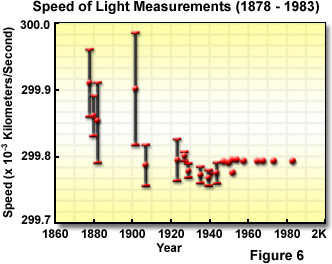- Nov 13, 2017
- 12,212
- 12,469
- Country
- Romania
- Gender
- Male
- Faith
- Christian
- Marital Status
- Married
Hello,
This isn't a 'does God exist' question, I'm just interested in what people working in the field think about variations in the measurement of 'constants', specifically the speed of light and the 'big G', and what the implications are of this within the study of physics. I haven't been able to find an argument that doesn't try to either pretend the variations don't happen, dismiss them without due consideration or just refer to what someone else said and consider that as closing the argument.
I've been reading through Rupert Sheldrake's 'The Science Delusion', so that's where the question comes from,
Thanks
Tom
This isn't a 'does God exist' question, I'm just interested in what people working in the field think about variations in the measurement of 'constants', specifically the speed of light and the 'big G', and what the implications are of this within the study of physics. I haven't been able to find an argument that doesn't try to either pretend the variations don't happen, dismiss them without due consideration or just refer to what someone else said and consider that as closing the argument.
I've been reading through Rupert Sheldrake's 'The Science Delusion', so that's where the question comes from,
Thanks
Tom


